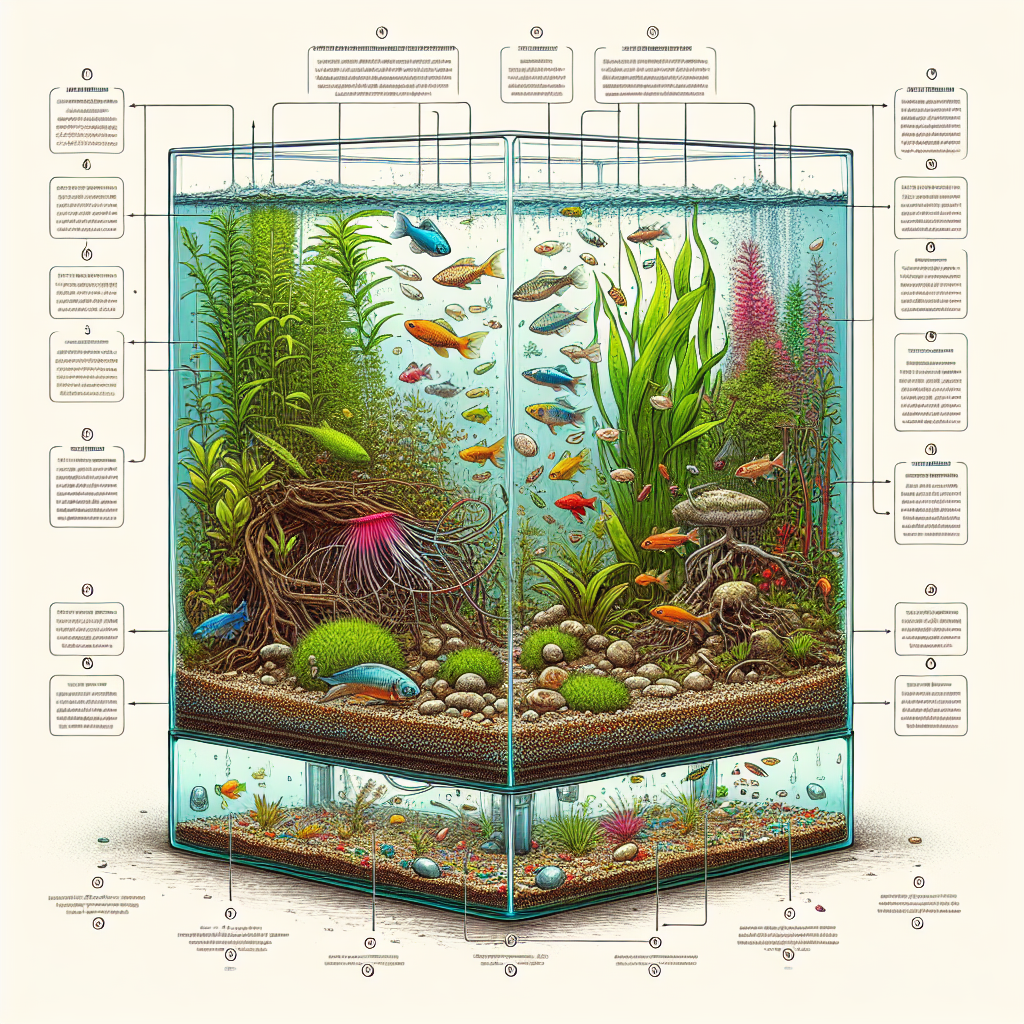Aquarium Ecology Basics
Welcome to the vibrant world of aquarium ecology, a fascinating endeavor that brings the complexity of aquatic ecosystems into the comfort of your home. Aquariums do more than hold water and fish; they are intricate systems that replicate life under the sea, requiring balance, attention, and understanding. Diving into aquarium biomes means exploring the vast interactions between plants, animals, and microorganisms—an adventure that rewards with serene beauty and a deeper appreciation for marine life.
Water Biomes Uncovered
An aquarium biome is a recreation of natural aquatic environments, from the sun-drenched tropical reefs to the mysterious depths of freshwater rivers. Creating a thriving aquatic biome involves more than just aesthetics; it's about establishing a self-sustaining, balanced ecosystem. A keen eye for detail and a dedication to understanding the needs of your aquatic inhabitants are key.
Balance of Life Elements
At its core, aquarium ecology is about balancing different life elements to create a healthy, self-sustaining environment. The interplay between light, temperature, water chemistry, and biological filtration forms the basis of the underwater biotope. Careful control of these factors ensures the survival of both flora and fauna and maintains the ecological equilibrium.

Creating Underwater Harmony
Introducing various species into an aquarium requires understanding their natural habitat and needs. Fish, invertebrates, and plants must be carefully chosen to coexist peacefully and contribute positively to the biome. For instance, adding live aquatic plants can help regulate water conditions by absorbing nutrients and providing oxygen through photosynthesis.
The Nitrogen Cycle Decoded
A successful aquarium ecosystem hinges on the nitrogen cycle. This natural process involves converting harmful byproducts like ammonia into less harmful substances such as nitrates. Beneficial bacteria play a crucial role in this cycle, thus introducing these microorganisms is vital for a new tank's health. Optimizing filter systems and monitoring water parameters ensures the cycle remains intact.
Choosing Your Biome
When beginning your aquarium journey, decide on the type of biome you want to create. Freshwater tanks are popular among beginners for their simplicity and lower costs, while marine tanks, with their exotic fish and vibrant corals, provide a stunning slice of the ocean but require more expertise and maintenance. Consider the commitment level and the kind of ecological challenge you're prepared to embrace.
Maintaining Ecological Health
Regular maintenance is the cornerstone of a healthy aquarium. This includes tasks such as water changes, cleaning substrates, testing water parameters, and pruning plants. Effective maintenance avoids algae overgrowth, controls waste levels, and prevents diseases, all of which are critical for an ecological balance.
Selecting the Right Gear
Equipping yourself with the right tools is essential for managing an aquatic biome. This includes high-quality filters, heaters, lighting systems, and testing kits. Modern technology has also introduced smart aquarium devices that can monitor your tank's conditions and even automate certain tasks.
Connecting with Community
Finally, joining the aquarium community can immensely benefit your aquatic journey. Enthusiasts and experts alike share their knowledge and experiences, offering advice on everything from species compatibility to advanced ecological methods. There are numerous resources and forums online for both newcomers and seasoned hobbyists.
Embracing Aquatic Stewardship
Starting an aquarium means becoming a steward of a small, flourishing slice of aquatic life. As you research, plan, and eventually dive into this endeavor, you'll find joy in each challenge it presents. Always remember that patience and learning are as much a part of aquarium ecology as the water and life within it. Happy fishkeeping!